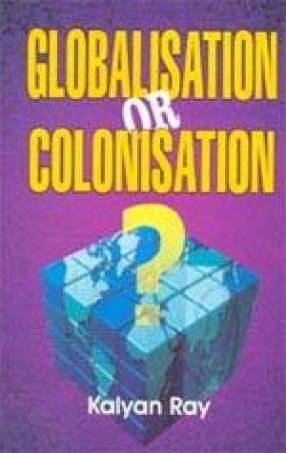Globalisation or Colonisatioin?
In stock
Globalism has come to be accepted as the dominant world philosophy for the twenty-first century. Globalisation is not a new phenomenon, but extension of the policy of colonization, which started with the Industrial Revolution in England. The author has traced the history of Colonialism from the eighteenth century and linked it up with the present phase of Globalisation. While analysed the process of industrialization in France, Germany and the U.S.A. The two world wars were the result of competition for world hegemony, required for continuation of industrial revolution in the West. Two world wars intervened before an American centred world economy replaced a British centred one World Bank and I.M.F., the guardians of World monetary system, have played a major role in this direction. Signs of world depression are evident and serious differences have surfaced between U.S.A. and Britiain on the one side and on the other France and Germany, where the economic miracle has already run out of steam, giving credence to the theory that miracles are only short-lived. Colonialism is essentially an economic phenomenon and has outlived its formal political end. Economics and politics being closely inter-related, economic globalisation will also lead to political globalisation, with consequent loss of national sovereignty. Globalisation process consists of development of a strong center, with dominant states and a weak periphery of third world countries. The process of globalisation consists of globalisation of resources of the world, for the benefit of a small section of people, who control the levers of power. The picture if globalisation is one of increased unemployment and poverty throughout the world, while resources are being concentrated in the hands of the few through global control of technology. A technology and trade control regime has been ushered in through Dunkel Report of 1991 and subsequent world Trade Organization Agreement of 1994. This will not be in the interest of developing countries and particularly for India, where population constitutes the main resource. Technological redundancy, which is one of the author has supported his analysis and findings by thorough research. The book opens up an entirely new chapter on globalization, which will be of interest to academics, policy makers and general public, who are interested in the future of the country and the world at large.







There are no reviews yet.